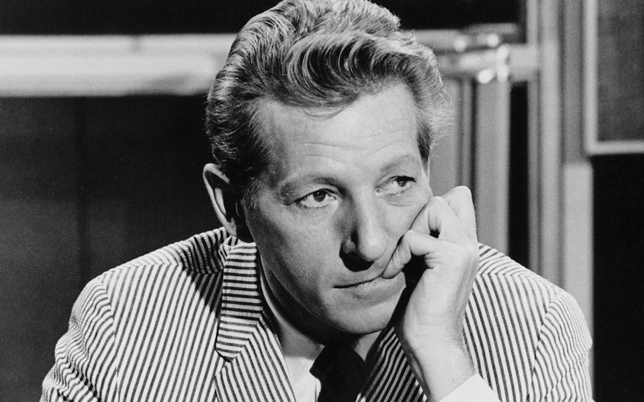
- Industry
Danny Kaye: The Original Walter Mitty
Arguably the greatest comedian of the sound era, the Hollywood Foreign Press again got it right when they awarded Danny Kaye a Golden Globe in 1951 as Best Actor in a Comedy or Musical for On the Riviera. Seldom seen since its initial release, it is one of Twentieth Century Fox’s best musicals. Not surprisingly, it was a remake of an earlier Fox musical called That Night in Rio. Zanuck had a knack for recycling his hits. The list is endless; check out Tyrone Power’s career.
The film far surpasses the original. It boasts brisk direction by Walter Lang, spectacular Technicolor, better preserved than at any other studio, Gene Tierney looking absolutely gorgeous, a vibrant Corinne Calvet in her best role, and superb supporting cameos from Marcel Dalio, Clinton Sundberg and Sig Ruman. Add the exciting choreography of Jack Cole, the clever screenplay, the work of the Ephron seniors, but most of all the special material written by Sylvia Fine — someone ought to do a retrospective of her work in film – and the result is a gorgeous film.
The producer is one of Hollywood most under-appreciated talents, Sol C. Siegel. Check his filmography, starting with Mrs. Wiggs of the Cabbage Patch at Columbia, Blue Skies at Paramount, A Letter to Three Wives and Gentlemen Prefer Blondes at Fox, and finally High Society and Some Came Running at MGM.
But first and foremost there is Danny Kaye.
At the height of his career he was lionized by everyone, even Sir Laurence Olivier. A singular talent he was discovered by Sam Goldwyn and what better champion could you ask for? The Goldwyn touch is evident in all Kaye’s films, and he surrounded the unknown actor with the best talent money could buy. Goldwyn personally supervised all his films while he was under contract starting with Up in Arms.
Rumor has it he took the promising Broadway actor, an overnight sensation in Lady in the Dark, dyed his hair red so he wouldn’t look so ethnic, and possibly bobbed his nose.Up in Arms was a runaway success and he followed that with Wonder Man and The Kid from Brooklyn, both remakes of Harold Lloyd comedies. The Secret Life of Walter Mitty remains his best film.
Of course his success could never have happened were it not for Sylvia Fine (his wife) who wrote his great material, both words and music. She pioneered what we now think of as special material – patter songs -and every one of them is as fresh today as the first time you heard it.
Hans Christian Anderson with a subdued Danny was his last Goldwyn film, but he and Silvia looked elsewhere, and they went onto greater success at other studios. For Warner’s, the Inspector GeneralKnock on Wood and The Court JesterOn the Riviera. That ten year period is among the most prodigious of any comic talent in the history of film. Then came White Christmas, a Crosby-Irving Berlin confection (Kaye replacing Donald O’Connor at the last minute), but after that his career was essentially over. He attempted dramatic roles; Jacobovsky and the Colonel earned him mixed reviews, even a Golden Globe.
But the magic was gone, and he spent the rest of his life doing warm and fuzzy television, appearing so frequently that people forgot that he once was the great comic genius of the ’40s, far surpassing Jerry Lewis, Bob Hope, and Red Skelton in quality.
Check out his movies.
Phil Berk